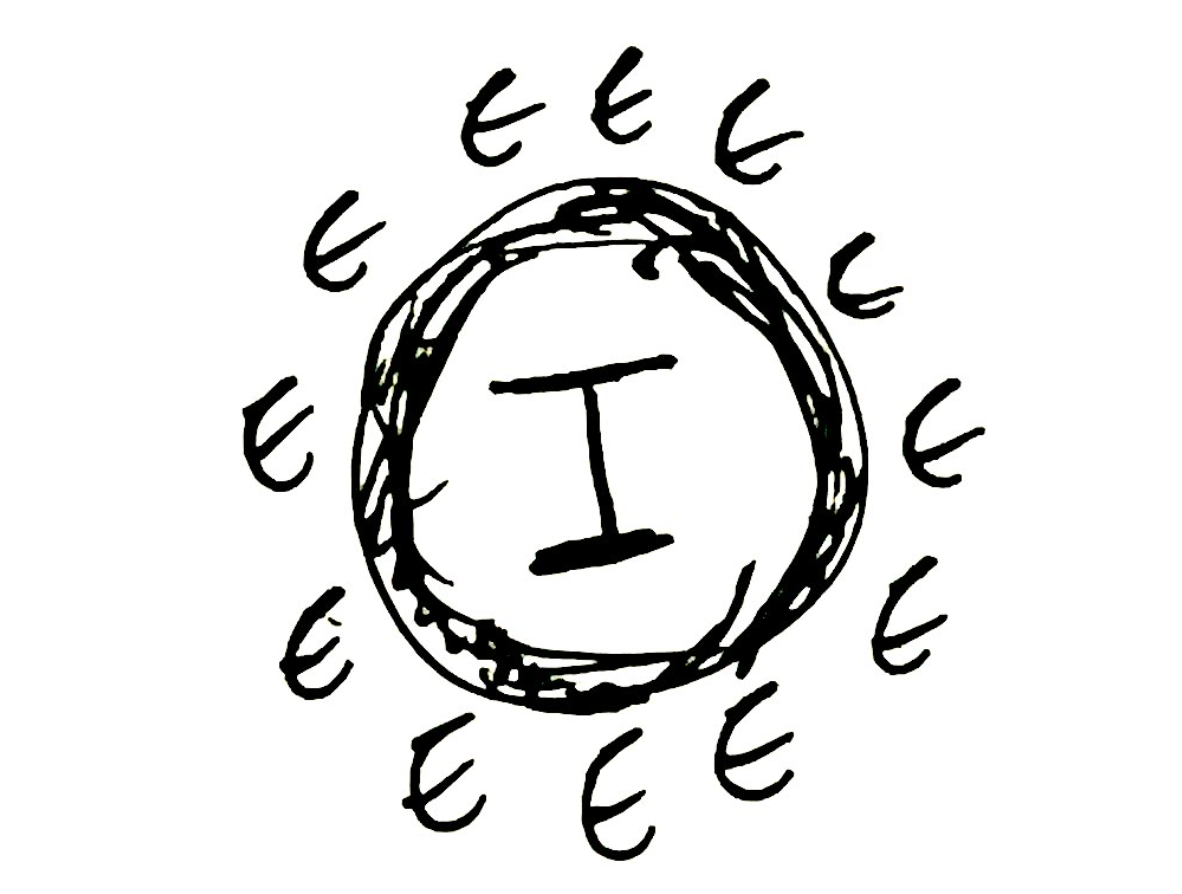In recent years I’ve tried to come up with structures or mechanisms that afford me philosophical meaning. It’s quite difficult to theorize or strategize on life broadly, but there is one central concept that can ground my analysis of myself and advise me on how to live: The dichotomy of self, i.e. the internal and external1.
The internal is oneself, an end in itself, the central observatory tower with which to view the world. It is the training camp for dealing with and preparing for the external world, where refinement of self and confidence are built. If one trains oneself properly, great rewards will naturally orbit around or cling to oneself, as surely as Titan orbits Saturn or babies cling to their mothers.
The external is the full outside world, the relationships out there, the workings of the world and all its beauty or insanity. It’s the means to an end—yourself. One conception of the relationship between the internal and external is that you build up a rocket in the internal, and then watch it propel you to victory in the external. After all, you cannot fundamentally control the external (unless you view the external as a derivation of the internal) anyways.
In September 2021, when my momentum trended down after getting out of trading2, I spoke to myself for hours, recording myself, promising that everything would be better. Through the reflection I discovered two lessons: Let the internal dictate the external; keep yourself with “positive base momentum”3. There was an additional realization: There exists no situation in which giving up internal discipline for external show is a sustainable strategy. First, if you fail to train yourself internally, there are many successes you could’ve achieved externally, but didn’t even know you could achieve, as you weren’t at that internal level yet. Second, even if you outperform expectations externally, if you had developed your internal self more, you not only wouldn’t have had to outperform by as much to get the same level, but you also could’ve hit higher heights!
There’s a crucial nuance with this internal-external model, and it is reflected in the title: whether they are two different things, or one is just a reflection of the other. Philosophically it may be the case that the external is entirely created by the mind, or the internal; the opposite view is that there is no core to ourselves, and we are entirely a function of the environment. Strategically, I view the internal and external as distinct. Only then can I squarely categorize one as a dojo, and the other as the battlefield. Given that such a view is in accordance with the Triplex Method, I think it is a sound view, hence my title.
Footnotes
1 Tangentially, my conception of the internal and external was a direct result of a question my physics teacher (one of the greatest teachers I’ve had!) asked to us in 2018 out of curiosity: “Does anyone know the difference between revolution and rotation?” I didn’t know at the time, but after going home, I realized it depended on the axis: if it were within the object, it’s rotation; if without, revolution. I didn’t formalize the notion of philosophical internal and external until late 2019, though.
2 See my article "Stocking Up on Trading" for an analysis of what I learned strategically from that phase!
3 See my article "A Battle Against the Dying Flame"name for my views on momentum.
